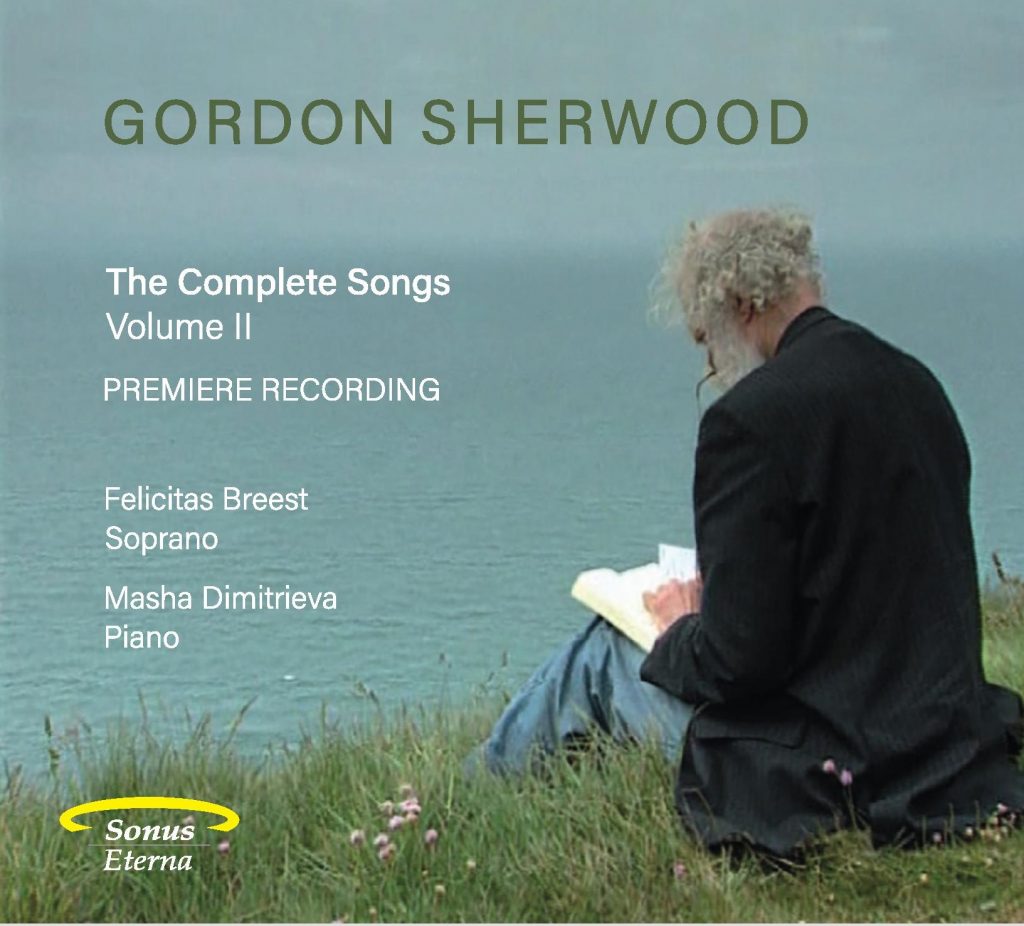Holger Sambale [27 .07.2021]
It is to the credit of the pianist Masha Dimitrieva and her label Sonus Eterna that the oeuvre of the American composer Gordon Sherwood (1929-2013) has become more and more discographically accessible in recent years; with volume two of the complete recording of his songs, the fourth CD of her Sherwood Project is now available. Sherwood was a great outsider with an extraordinary life: a pupil of Copland, Jarnach and Petrassi, among others, he was already able to celebrate considerable success during his studies, but decided against becoming part of the musical establishment. After longer stays in the Middle East, Kenya and Southeast Asia, he lived in Paris since 1982, where he financed his living and his compositional activities as a beggar. He spent his retirement in a diaconal institution in Bavaria.
Sherwood’s music is open to a wide variety of influences, beginning with the Western European musical tradition from Baroque to Classical Modernism, in addition to which one encounters, among other things, jazz music and blues as well as music from the Orient, India or Far Asia, insofar reflecting the numerous stations of his life. The result is a body of work that takes up a wide variety of suggestions and synthesizes them, yet still has a distinctly personal, communicative voice that is independent (of fashions).
Nature, love and childhood memories
The three song cycles collected on this CD were written between 1969 and 1973 and are based – as is almost always the case with Sherwood – on his own poems. The Four Romantic Songs are about nature and (first) love, also in retrospective, the Seven Songs of Mother Nature offer small, very suggestive nature scenes and descriptions, and the Songs from My Childhood look back on childhood and recall sensory impressions and small, possibly formative events. The vast majority of the songs are rather short, lyrical, poetic and intimate; more dramatic moments and greater emphasis are found mainly in the more extensive songs from Songs from My Childhood.
Artful simplicity and multiple shades
All three cycles thus deal with related themes (it is no coincidence that the CD begins and ends with a spring breeze), and it is certainly for this reason in particular that the new release seems at first glance more homogeneous, marked by greater stylistic unity than some of the previous Sherwood releases. Indeed, the title of the first cycle may well be regarded as indicative of the whole CD, for many of the songs have a certain romantic core. Their melodies are for the most part immensely catchy, of delicate, natural and at the same time artful simplicity, the harmonies clearly tonal and often rich, yet (like the choice of keys, by the way) used very purposefully to realize a variety of nuances and shadings. Under the surface, so to speak, one finds the manifold influences typical for Sherwood. An example of this is the closing song of the Four Romantic Songs, which indeed seems as romantic as the title suggests, but on closer inspection is inspired by Bach and blues music at the same time. That this happens completely organically and as a matter of course is one of the insignia of Sherwood’s compositional art.
First class interpretations, excellent booklet
The interpretations by soprano Felicitas Breest and Masha Dimitrieva are first-rate; the naturalness of Breest’s performance is particularly noteworthy, while Dimitrieva’s piano playing is excellent at shaping the numerous text-reflective details that distinguish Sherwood’s music. The overall sound quality of the recordings is also very good (only the final song of the Songs of Mother Nature has a somewhat more distant sound than the other songs), but longer pauses between the song cycles would be desirable. Special praise is due to the extensive booklet with an excellent accompanying text by Florian Schuck, who goes into detail about each of the songs and gives the listener numerous valuable hints, as well as Sherwood’s poems in the original and in German translation. The care with which Sherwood and his songs are presented here can confidently be called exemplary. All in all, an excellent production.











